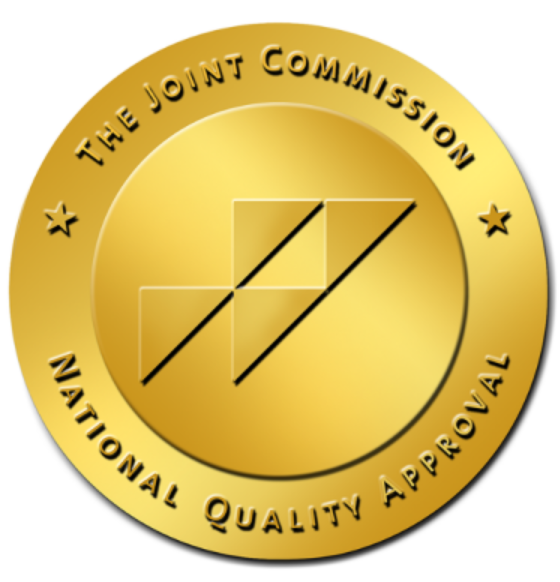Outpatient Treatment Program (OP) Los Angeles
What is an Outpatient Treatment Program?
Outpatient treatment programs, or OPs, are an effective and very flexible kind of treatment program for those with substance use disorders. While individuals with extremely severe problems might need the more intensive support system of an inpatient or residential treatment program, outpatient programs have the advantage of allowing the recovering individual to continue living at home.
An outpatient treatment center works with individuals and their families to develop both a short and a long-term plan to deal with the substance abuse problem. Unlike intensive outpatient programs or partial hospitalization programs, basic outpatient programs have a low time commitment. Thus, patients can pursue recovery without sacrificing their work, school, or family commitments. This flexibility allows recovering individuals to achieve their sobriety goals and other personal goals simultaneously.
Outpatient treatment programs are usually held in a clinic, office or community mental health center and last for around two hours a day. While these programs are designed so that patients can sleep in their own homes at the end of the day, some do find it beneficial to enroll in a sober living home as well. This can make recovery far simpler, especially if home life is not conducive to recovery.
For those finishing a residential treatment program or an intensive outpatient program, an outpatient program can be a great way to transition to “real life.” It allows people to settle into a normal life routine while still getting crucial support for recovery and mental health.
Our Levels of Care
Partial Hospitalization
Partial Hospitalization Programs (PHP) are a great option for individuals who want the intensity and structure of an inpatient treatment program with the flexibility of an outpatient program.
Intensive Outpatient
Intensive Outpatient Programs (IOP) provide individuals with a thorough, daily regimen of group and individual therapy that newly sober individuals need in the first few months of recovery.
Outpatient Treatment
Outpatient treatment programs are an effective and very flexible kind of treatment program for individuals struggling with addiction, mental health and impulse control disorders.
Aftercare Planning
Aftercare treatment programs are services that people who graduate from inpatient and outpatient programs are advised to make use of to facilitate long term sobriety after leaving treatment.
How Does an Outpatient Treatment Program Work?
Most patients enroll in outpatient programs after being sober for several months. It is most common for enrollees at an outpatient treatment program to attend the program for a short period only each day — often only 2 hours. Unlike a residential program, the entire day isn’t determined by the program. The rest of the day can be used freely, though many do choose to continue pursuing recovery activities, such as attending 12-step meetings.
Outpatient treatment centers vary widely in terms of treatment philosophies used. How a treatment plan is implemented partially depends on the patient’s history and state of mind. Most outpatient programs, however, make use of a variety of common practices and techniques. These include:
The Benefits of an Outpatient Treatment Program
It Allows for a Flexible Schedule
Another huge advantage of outpatient treatment programs is that support groups at the treatment center happen for a limited period of time each day. This allows patients to get a sufficient level of care without having to postpone or rearrange work, family, school, or other life commitments. Full-time residential programs and IOPs can seem out of reach for people with children and families to take care of. Others risk losing their jobs if they commit to a full-time residential program. Each case varies widely. Of all the types of treatment facilities available, outpatient treatment programs allow the most flexibility.
It’s Great for Transitioning from An Intensive Outpatient Program (IOP)
After completing an intensive outpatient program or residential program, many are unsure of their next move. Research suggests that the longer a recovering individual follows a treatment plan, the lower their chances of relapse down the line. By enrolling in an outpatient program, patients can smooth out the transition to normal life. They can continue to develop their sober support network, repair relationships, and work on addiction recovery. There’s no need to pursue that in isolation just because one has graduated from one’s IOP.
It's Affordable
Outpatient treatment programs are by far the most affordable types of treatment. Unlike residential treatment programs where patients are required to pay for a bed and lodging, outpatient treatment facilities only require patients finance the services offered. Outpatient treatment programs also carry a smaller price tag than intensive outpatient programs and partial hospitalization programs, which are more expensive because they last for a longer period of time.
Outpatient Treatment Program for Co-occurring Mental Health Disorders
Outpatient treatment programs can be especially beneficial for patients who have a mental health disorder other than a substance abuse problem. Drug and alcohol problems can be insurmountable for this population of people because of the way substance use disorder interacts with other mental health disorders.

Patients who possess one or more mental health disorders in addition to substance use disorder are called “dual diagnosis” or “comorbid.” Comorbidity refers to the phenomenon whereby the disorders mutually exacerbate each other. As a result, dual diagnosis treatment involves a process called integrated treatment. This means that strategies for coping with mental illness are combined in the same package with treatments for substance use disorder.
Mental health disorders that are common in dual diagnosis patients:
- Bipolar Disorder
- Depression
- Anxiety and Panic Disorder
- Mood disorders
- Borderline Personality Disorder
Are You a Good Candidate for an Outpatient Treatment Program?
Outpatient treatment programs are a level of care that recognizes that individuals have broad and varied lives. The level of care is not as intense as that which residential or inpatient programs offer. However, it has the advantage of letting patients develop a strong social support system and program of recovery for drug or alcohol abuse without demanding they put their lives on hold. Outpatient treatment programs are appropriate for a diverse array of groups, including:
How Do I Find and Make Financial Arrangements for an Outpatient Treatment Program?
Outpatient treatment programs, or OPs, are an effective and very flexible kind of treatment program for those with substance use disorders. While individuals with extremely severe problems might need the more intensive support system of an inpatient or residential treatment program, outpatient programs have the advantage of allowing the recovering individual to continue living at home.
- The Behavioral Health Treatment Services Locator offered through the Substance Abuse and Mental Health Services Administration (SAMHSA) website
- Create Recovery Center’s staff and resources
- A recommendation from a friend or acquaintance from Alcoholics Anonymous who has graduated successfully from an OP
- A referral from a psychologist, counselor, or doctor
- Health insurance. Not all substance abuse treatment programs accept insurance, and likewise your insurance company might not cover certain OPs. But this is always a good first place to investigate.
- A negotiated payment plan. Some programs make arrangements for people who are down on their luck.
- Not everyone is able to ask for help from friends and family, but those who still have this kind of support can likely find resources here.
- Taking out a personal loan. Taking out a personal loan is not as hard as it sounds. It may even be a good investment in your financial future, since your earnings will likely increase if you achieve sobriety after financing your recovery.
Outpatient Treatment Programs at Create Recovery Center
Create Recovery Center specializes in all levels of care for recovering individuals with a desire to get and stay sober. Create Recovery Center recognizes that substance use disorder is more than just a physical dependence on drugs and alcohol. True recovery involves making use of holistic services that treat the complete person and allow them to rebuild their lives again from the ground up. To that end, Create Recovery Center offers a variety of services as part of its outpatient program that include but are not limited to:

Feel free to reach out if you have any questions about Create Recovery Center’s outpatient treatment program in Los Angeles, California. One of our staff will take however much time is needed to determine your unique needs and design an appropriate treatment plan conducive to your long-term sobriety.







